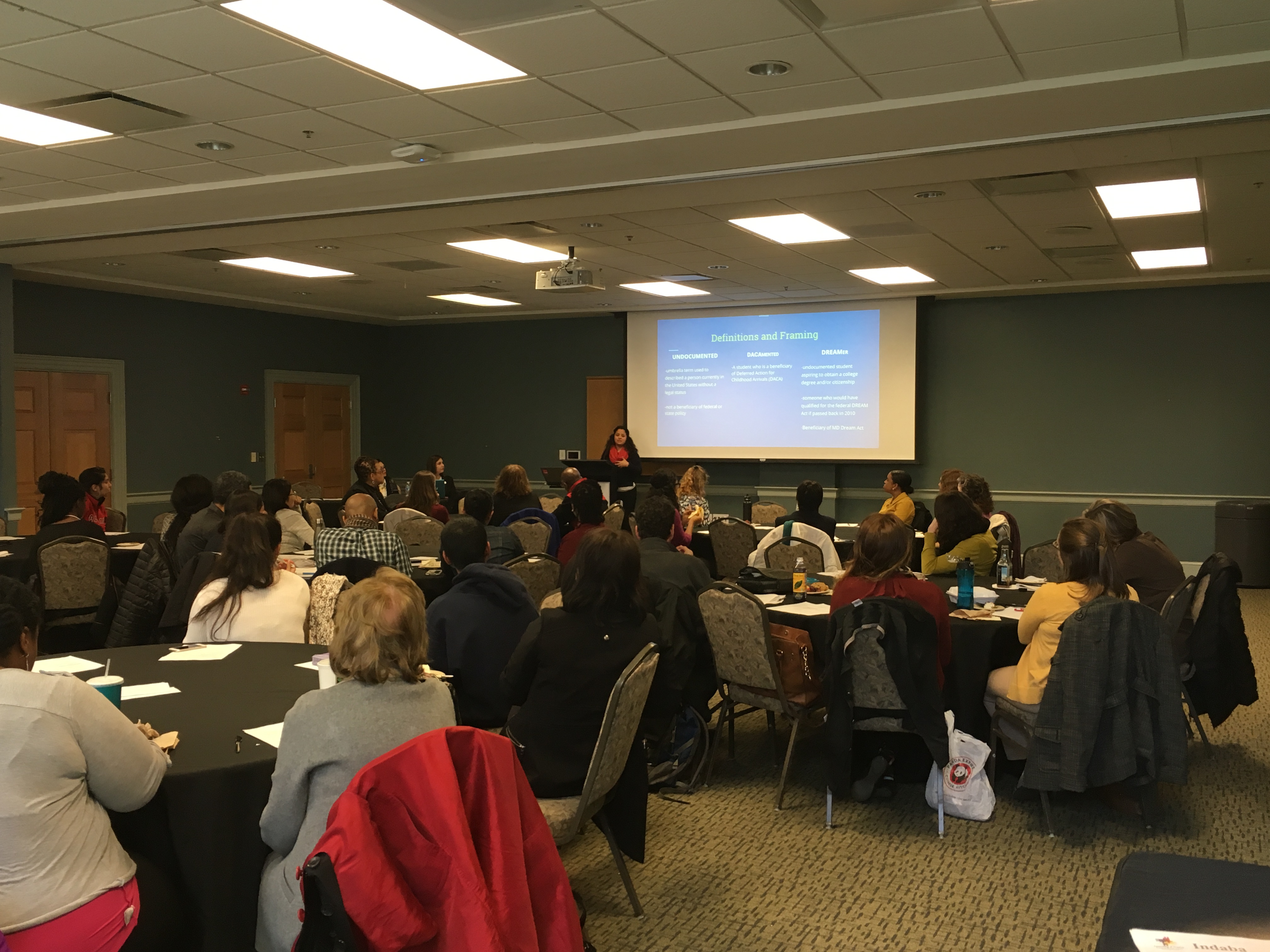By Samuel Antezana
For The Diamondback
Last year, University of Maryland senior Karen Vanegas finally became a United States permanent resident. But she had shifted from being an undocumented student, to a student covered by the Maryland Dream Act, to a having status under Deferred Action for Childhood Arrivals, and each status came with different benefits.
Under DACA, she had the ability to work and have a Social Security number, which was not the case while she was a Dreamer, she said.
“It’s important to differentiate between these statuses because of the legal implications that each one has,” said Vanegas, a government and politics and journalism major.
Vanegas was among the audience of about 50 people Tuesday afternoon as three panelists gathered in Stamp Student Union to review the challenges and experiences undocumented students might face. The panel was part of the Indaba Series, a Division of Student Affairs diversity initiative focused on pointing students to the right resources.
Yvette Lerma, coordinator for Latin@ student involvement and advocacy at the Office of Multicultural Involvement & Community Advocacy, explained that the term “undocumented” can act as an umbrella for the entire population of students who are without U.S. legal status. The term also references people who qualify under DACA and the Maryland Dream Act, she said.
Being a “DACAmented” student provides benefits such as aid in prevention of deportation, as well as other privileges that undocumented students would normally not get, Lerma said.
“When you go to renew your DACA every two years, you have to swear that you haven’t been participating in any unlawful activity,” said Michelle Espino, a counseling, higher education and special education professor. “When we are talking about college students, they can’t even necessarily ‘enjoy’ all aspects of college life, whether they be good or bad, for fear of being caught by the authorities and losing their benefits.”
Students who fall under the Maryland Dream Act also have a variety of benefits. One is the ability to be granted in-state tuition instead of being deferred to international status, Lerma said.
But there can be perceived pressure on these students from the government to be “perfect students,” said Espino, because they could lose their chances of getting into college if they do poorly in school.
“This whole idea of perfection is an idea in the minds of so many of these students, and they really don’t know who to go to for help because they don’t have the resources,” Lerma said.
Undocumented students also might have trouble pursuing higher education because many of them, if they not eligible to apply for the FAFSA, have to pay out of pocket. About 21 states have begun creating tuition equity policies, Espino said, which can provide access to in-state tuition, Espino said. Other states offer state-based financial aid.
Espino emphasized that faculty should take note of the implications of the different statuses and learn about them in order to better provide students with informed help.
“The need to know the policy given to undocumented students who possibly would come to me in the future is critical,” said Ronald Zeigler, Nyumburu Cultural Center director, who was among the audience members. “It’s important for administrators, faculty and staff to be knowledgeable about the university’s position, and we have to have empathy towards these students’ experiences because they did not create the situation.”



